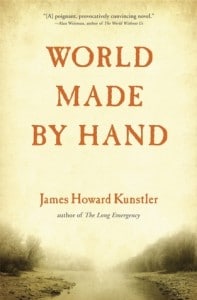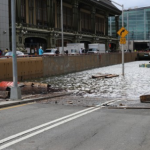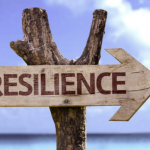A simple life is hard to imagine. Here’s one way.
Lost driver: “Can you tell me how to get to Union Grove?”
Roadside farmer: “No. But if I was you, I wouldn’t start from here.”
Most of us have trouble seeing from here down the road. If we ponder what life would be like with a lot less water, air-conditioning, meat, or municipal services, it’s hard to visualize. How would limited transportation, lower home values, more community conflict, and food scarcities feel? We can’t quite imagine.
 I spend hours researching dangers like these and possible tactics for dodging them. But even I have trouble conjuring visions of their everyday consequences. When I need to peer ahead, I take another route. I re-read World Made by Hand, by James Howard Kunstler.
I spend hours researching dangers like these and possible tactics for dodging them. But even I have trouble conjuring visions of their everyday consequences. When I need to peer ahead, I take another route. I re-read World Made by Hand, by James Howard Kunstler.
This sweet and anxious tale takes place in a small town “after our world changed.” Candles, wooden wheels on mule-drawn carts, and empty decaying buildings. People regrouping in smaller units, ancient skills revalued, and fresh food. It’s a good read.
Yes, the story is dystopian, but it would be hard to say, “that could never happen.” It doesn’t feel like science fiction. The humanity of the characters, the carefully thought-out circumstances of their lives, the uncertain leadership, and the acceptance of new frugal habits all ring true.
When you read some specific advice about how to climate-proof your life, and you may find yourself thinking, “I can’t believe we’d ever need to do that,” go to Union Grove for a summer (sixty-five short chapters). Maybe our needs won’t ever extend that far, but at least we can imagine them, and think backwards to a world that’s less difficult than Union Grove, yet one we need help planning for.



